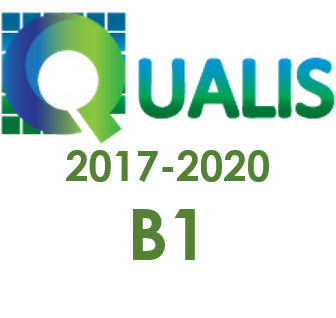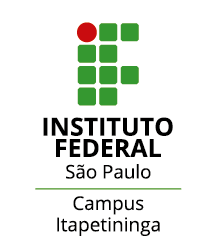Assessment for learning
critical and creative thinking in science classes in the second cycle of portuguese basic education
Keywords:
Critical Thinking. Creative Thinking. Science Education. Didactic-pedagogical practices.Abstract
Today's contexts of life, strongly marked by uncertainty, justify science education for all, which helps to deal effectively and productively with socially relevant issues involving science and technology. This requires an emphasis on the development of Critical and Creative Thinking (PCC), as they are fundamental to achieving maximum efficiency in decision-making and problem solving, within a framework of personal fulfillment and sustainable development. In this article, theoretical references are made explicit and focus on clippings of science didactic-pedagogical practices, with guidance for the PCC, illustrative of activities and integrating assessment for learning.
Downloads
References
ALMEIDA, L. S. Criatividade e pensamento crítico. in L. S. Almeida (coord.), Criatividade e pensamento crítico: Conceito, avaliação e desenvolvimento. Porto: Centro de Estudos e Recursos em Psicologia, 2017, p. 5-17.
BARBOT, B.; BESANÇON, M.; LUBART, T. The generality-specificity of creativity: Exploring the structure of creative potential with EPoC. Learning and Individual Differences, n. 52, p. 178-187. 2016.
DIREÇÃO GERAL de EDUCAÇÃO. Aprendizagens essenciais – Ciências Naturais. Lisboa: Ministério da Educação e Ciência/Direção Geral de Educação, 2018. Disponível em: http://www.dge.mec.pt/sites/default/files/Curriculo/Aprendizagens_Essenciais/2_ciclo/5_ciencias_naturais.pdf (acedido em setembro 2018)
ENNIS, R. H. A logical basis for measuring critical thinking skills. Educational Leadership, v. 43 n. 2, p. 44-48. 1985.
ENNIS, R. H. Critical thinking. Upper Saddle River, NJ: Prentice Hall, 1996.
ENNIS, R. H. Critical Thinking Across the Curriculum: A Vision. Topoi, n. 37, p. 165–184. 2018.
ENNIS, R. H.; MILLMAN, J. Cornell Critical Thinking Test, Level X. Pacific Grove, CA: Midwest Publications, 1985.
HEONG, Y.; HAMDAN, N., CHING; K., KIONG, T.; AZID, N. Development of Integrated Creative and Critical Thinking Module in Problem-Based Learning to Solve Problems. International Journal of Scientific & Technology Research, v. 9, n. 3, p. 6567-6571. 2020
LUCAS, M.; MOREIRA, A. Quadro europeu de competência digital para educadores. Aveiro: Universidade de Aveiro, 2018. Disponível em http://hdl.handle.net/10773/24983 (acedido em novembro 2021).
LUCAS, B. A field guide to assessing creativity in schools. Perth: FORM, 2022.
MARTINS, O. et al. Perfil dos Alunos à Saída da Escolaridade Obrigatória. Lisboa: Ministério da educação e Ciência/Direção Geral da Educação, 2017. Disponível em: http://hdl.handle.net/10400.26/22377 (acedido em setembro 2017)
ORGANIZAÇÃO para a COOPERAÇÃO E DESENVOLVIMENTO ECONÓMICO. The future of education and skills. Education 2030. Paris: OCDE Publishing, 2018. Disponível em: https://www.oecd.org/education/2030/E2030%20Position%20Paper%20(05.04.2018).pdf (acedido em novembro 2022).
ORGANIZAÇÃO para a COOPERAÇÃO E DESENVOLVIMENTO ECONÓMICO. Thinking Outside the box. Paris: OCDE Publishing, 2022. Disponível em: https://www.oecd.org/pisa/innovation/creative-thinking/ (acedido em novembro 2022)
ONTARIO EDUCATIONAL GOVERNMENT (OEG). The Ontario Curriculum. Science and Technology 2022. Grades 1-8. OEG, 2022. Disponível em: https://assets-us-01.kc-usercontent.com/fbd574c4-da36-0066-a0c5-849ffb2de96e/a6136d61-3120-43f0-94a3-5859e0319382/The%20Ontario%20Curriculum%20Grades%201–8%20–%20Science%20and%20Technology%202022.pdf (acedido em outubro 2022)
OSBORNE, J.; DILLON, J. Science Education in Europe: Critical Reflections, a Report to the Nuffield Foundation, 2008. Disponível em: http://www.pollen-europa.net/pollen_dev/Im- ages_Editor/Nuffield%20report.pdf) (Acedido em outubro 2010).
PAUL, R.; ELDER, L. Critical Thinking: The Nature of Critical and Creative Thought. Journal of Developmental Education, v. 30, n. 2, 2006, p. 34-35.
TENREIRO-VIEIRA, C. O pensamento crítico na educação científica: Proposta de uma metodologia para a elaboração de atividades curriculares. Dissertação de mestrado (não publicada), Universidade de Lisboa, 1994.
TENREIRO-VIEIRA, C. A influência de programas de formação focados no pensamento crítico nas práticas de professores de ciências e no pensamento crítico dos alunos. Tese de doutoramento não publicada, Universidade de Lisboa, 1999.
TENREIRO-VIEIRA, C; VIEIRA, R. M. Promover o pensamento crítico dos alunos: Propostas concretas de sala de aula. Porto: Porto Editora, 2001.
TENREIRO VIEIRA, C.; VIEIRA, R. M. Literacia e pensamento crítico: um referencial para a educação em ciências e em matemática. Revista Brasileira de Educação, v. 18, n. 52, 2013, p. 183-242.
TENREIRO-VIEIRA, C.; VIEIRA, R. M. Construindo práticas didático-pedagógicas promotoras da literacia científica e do pensamento crítico. Madrid: Organização dos Estados IberoAmericanos. 2014. (http://www.oei.es/divulgacioncientifica/?Construindo-praticas-didatico)
TENREIRO-VIEIRA, C.; VIEIRA, R. M. Promover o Pensamento Crítico e Criativo no Ensino das Ciências: Propostas didáticas e seus contributos em alunos Portugueses. Revista Investigações em Ensino de Ciências, v. 26, n. 1, 2021, p. 70-84.
TENREIRO-VIEIRA, C.; VIEIRA, R. M. (2022). Pensamento Crítico e Criativo para uma Educação Ciência-Tecnologia-Sociedade. Revista Ibero-Americana de Ciência, Tecnologia e Sociedade, v. 17, n. 51, 2022, p. 145-159.
TORRANCE, E. P. The search for satori & creativity. Buffalo, N.Y.: Creative Education Foundation. 1979.
TSAI, K. (2020). Investigating the Empirical Links between Creative and Critical Thinking. Psychology, Society, & Education, v. 11, n. 3, 2020, p. 267-280.
VIEIRA, R. M. Formação Continuada de Professores do 1.º e 2.º Ciclos do Ensino Básico para uma Educação em Ciências com Orientação CTS/PC. Tese de Doutoramento não publicada, Universidade de Aveiro: Departamento de Didáctica e Tecnologia Educativa. 2003.
VIEIRA, R. M.; TENREIRO-VIEIRA, C. Pensamento crítico e criativo na educação em ciências: percursos de investigação e proposta de referencial. in N. Kiouranis, R. M. Vieira, C. Vieira e V. Calixto (orgs.), Pensamento crítico na Educação em Ciências: Percursos, propostas de países ibero-americanos. São Paulo, Brasil: Editora Livraria da Física, 2021, p. 17-42.
VICTORIAN STATE GOVERNMENT, VICTORIAN CURRICULUM AND ASSESSMENT AUTHORITY (s/d). Disponível em: https://victoriancurriculum.vcaa.vic.edu.au/overview/about (acedido em outubro 2022)
VINCENT-LANCRIN, S. et al. Fostering Students' Creativity and Critical Thinking: What it Means in School. Paris: OECD Publishing. 2019.
Downloads
Published
How to Cite
Issue
Section
License
Copyright (c) 2022 Revista Internacional de Pesquisa em Didática das Ciências e Matemática

This work is licensed under a Creative Commons Attribution-NonCommercial-ShareAlike 4.0 International License.




